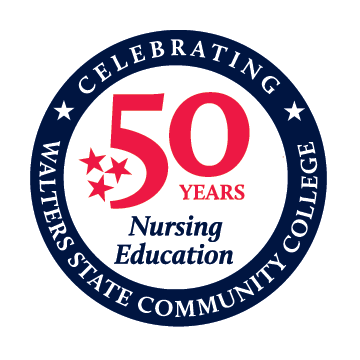Overview - Nursing

 Our Nursing graduates are ready to enter healthcare as registered nurses and provide
the highest quality of patient care. Trained by our caring and expert faculty, these
nurses play pivotal roles in improving community health. Walters State alumni proudly
serve in hospitals, long-term care facilities and clinics throughout the region. Graduates
are equipped to take the National Council Licensing Exam for Registered Nurses (NCLEX-RN).
Our Nursing graduates are ready to enter healthcare as registered nurses and provide
the highest quality of patient care. Trained by our caring and expert faculty, these
nurses play pivotal roles in improving community health. Walters State alumni proudly
serve in hospitals, long-term care facilities and clinics throughout the region. Graduates
are equipped to take the National Council Licensing Exam for Registered Nurses (NCLEX-RN).
Career Information
The career finder can help students decide upon the best career path for their area of study. It can provide valuable insights about occupations, salary, and employment trends related to each program of study offered at Walters State Community College. View the projected job growth and labor statistics for this academic program by entering a location.
*Modern Campus Pathways uses data provided by Lightcast.
The Walters State Experience

Why Should You “Write Your Story” at Walters State?
At Walters State, we focus on your success. Our classes are small and professors care about their students’ academic and career goals. Transfer to four-year colleges and universities is seamless through the Tennessee Transfer Pathway and articulation agreements. Want to start a career right after Walters State? Our technical certificates and associate of applied science degrees will train you for in-demand jobs in exciting fields, such as public safety, healthcare, technology and business.
Highlights
- Walters State has been twice awarded Tennessee Community College of the Year.
- Small classes and outstanding faculty who are focused on student success.
- 98% job placement rate for technical education graduates.
- Seamless transfer of classes to four-year colleges through the Tennessee Transfer Pathway program and articulation agreements.
Cost and Admissions
Apply to WSCC
Students must apply, meet admission requirements, and be accepted by Walters State Community College (WSCC).
Students are encouraged to:
- Indicate Nursing as their desired major.
- Follow college advising policy.
- Complete all required learning support courses.
A student who has completed the pre-clinical requirements and has met the general admission requirements is eligible to apply for admission to the clinical nursing program. To apply for admission into the clinical nursing program, the student must complete and submit a "Request for Admission into Clinical Nursing" form to the nursing department prior to the designated deadline (Fall admission - January 31; Spring admission - October 1; Career Mobility - January 31). The student must submit a current transcript from each college attended. Completion of pre-clinical requirements does not guarantee admission.
Funding Your Education
Tuition is set each June by the Tennessee Board of Regents. Tuition and fees for the current academic year may be viewed on the Cashiers Office website.
Four types of financial aid are available; federal, state, institutional and other sources. Students need to send FAFSA information to the college for consideration for state and/or federal money (lottery scholarships, Pell grants, etc.). WSCC is an eligible institution for Hope (lottery) scholarships. For specific information please contact the Financial Aid Office.
Program Outcomes
The following program outcomes will be measured:
- Performance on Licensure Exam: The program's most recent annual licensure examination pass rate will be at least 85% for all first-time test-takers during the same 12-month period.
- Program Completion: 45% of all students who begin in NRSG 1710 or in the traditional option will complete the program on-time which is 4 academic terms. 45% of all students who begin in NRSG 1100 or in the career mobility option will complete the program on-time which is 3 academic terms.
- Job Placement Rates: Eighty-five percent (85%) will be employed within six to twelve months post-graduation.
NCLEX-RN Licensure Pass Rate*
| Years | Pass Rates |
| 2024 | 96% |
| 2023 | 93% |
| 2022 | 77% |
Program Completion
Traditional Option*
| Year Admitted | Spring Admission | Fall Admission |
| 2023 | 49% | 58% |
| 2022 | 57% | 57% |
| 2021 | 39% | 46% |
Career Mobility Option*
| Year Admitted | Summer Admission |
| 2024 | 70% |
| 2023 | 55% |
| 2022 | 48% |
Job Placement Rate*
| Year | Placement Rate |
| 2024 | 98% |
| 2023 | 100% |
| 2022 | 100% |
*Rates rounded to nearest whole number.
Accreditation
The associate nursing program at Walters State Community College located in Morristown, Tennessee, is accredited by the: Accreditation Commission for Education in Nursing (ACEN) 3390 Peachtree Road NE, Suite 1400 Atlanta, GA 30326 (404) 975.5000
The most recent accreditation decision made by the ACEN Board of Commissioners for the associate nursing program is continuing accreditation.
View the public information disclosed by the ACEN regarding this program at:

